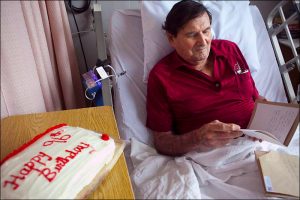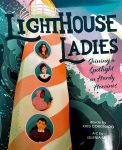December 7 always generates conflicting emotions for me. The date has a double significance. Yes, it’s the anniversary of the bombing of Pearl Harbor in 1941, and some years I share a letter my mother wrote to her older sister describing the events of the day as they were happening, and into the following day, from my parents’ viewpoint at their home here in Kahala. The same house we live in today, although after a thorough renovation. Other years I’ve shared a holiday letter distributed by my mom’s mentor and friend, Professor Carey D. Miller of the University of Hawaii, which described the travails at the beginning of the war and the issues that were on residents’ minds, like the difficulty of hiring yardmen after the start of the war. I have several of her holiday letters, at least through 1944, as I recall, each a small window into what the war was like here in Hawaii.
But it was also my father’s birthday, December 7, 1913.
This year, I’m drawn back to the last birthday we celebrated with him, December 7, 2009, in a post which first appeared the following day.

Pictures can be deceiving.
In a series of photos taken on my dad’s 96th birthday, he appears to be smiling and enjoying the occasion, complete with birthday cake, several cards and messages, and family.
Actually, he was mentally confused and didn’t feel well.
When I arrived, he was looking at a photo of his high school graduating class.
He told me he didn’t know who these people were, and when I said it was his high school class, he said quickly, “not my class!”
So I pointed out where he was standing in the back row. He looked. Then he identified Phyllis, in the front row, who married his older brother. “She’s passed away now,” he said matter-of-factly.
Then he told me that there was a big job waiting in the afternoon moving a shipment. I think, in that dreamworld that becomes a dementia patient’s reality, he was dealing with what had been a typical business problem. Get a customer’s order from the dock back to the store, then delivered to their business.
“There’s some big stuff that has to be moved,” he told me, voice serious.
Then he looked down at the class photo and the thoughts merged.
“It’s going to be hard moving 65 people,” he said, looking at the group.
I decided not to try following down that mental path.
When I told him it was his birthday, he wanted to know what year it was.
“Nineteen…nineteen…” He paused, looking at me to fill in the blank, tell him what year it is. I had to say that it’s 2009.
“So how old am I? Eighty?”
96, I answered.
He looked bemused. 96 is something that happens to someone else, to old people.
Then lunch arrived. He had scoop of what looked like a creamed turkey, rice, mixed vegetables. He pushed at the vegetables with his fork, but did not try them.
“What do you think that is?”
I told him that it looks like peas, corn, and beans, just sort of mixed up.
He turned the plate around so that they were on the far side, away from him.
He poked the fork into the turkey, then moved it to his mouth, sampling the taste. Then he put his fork back down without eating any more.
“It’s turkey.” I say the obvious because sometimes it makes a difference. Sometimes he ignores his food but, with a little encouragement, eats through the whole plate.
This wasn’t one of those times.
He seemed to have trouble with the food, although he drank a small can of Ensure, a protein drink. Even with that, he looked somewhat pained as he drank, as if it was in danger of unpleasantly returning.
I tried to get him to eat a little more. He refused, first saying that he didn’t like the food. Then that he wasn’t hungry. But I could see that food wasn’t going down well. After we sat for a while, he said that when he tried to eat, his breathing got faster. I don’t know what this could mean, so I reported it to the nurse on duty. She said it would be reported to the doctor. All that will come later.
My sister, Bonnie, and my mother then arrived and went down the hall to his room, so I hailed a nursing assistant to help us make the trip back to his bed, a trip that’s becoming increasingly difficult.
We made it, with some difficulty along the way, but finally he was back in bed, settled, alarm clipped onto his shirt, comfortable. Bonnie had a birthday cake set alongside the bed, but he didn’t notice until she pointed it out. There were several birthday cards, including one from his sister in California (his only surviving sibling), and another from the members of the Waikiki Surf Club, which he served as a founding member and first president more than 60 years ago.
I passed on a telephone message from one of his friends with a boat near his at the Ala Wai Harbor.
He went through the motions of reading the cards, but I don’t think he can actually see much without his glasses. Even after he put his glasses on, I couldn’t tell if he was able to process the contents, despite the time he spent on the task.
Then we got to the cake. He perked up. Despite skipping lunch, he managed to work his way through a nice piece of cake. I still don’t know if he understood that it was birthday cake served for his birthday. But perhaps that doesn’t matter. Looking at the photos, he was happy, in that moment, birthday or not.
One sad note. Although he often asks about my mom and frequently worries about her, he didn’t have much to say to her during yesterday’s visit. Perhaps he just felt comfortable and simply accepted her presence without comment. I don’t know. I hope that he understood that she was there to share the birthday with him and all of us.
Then he was ready to take a nap. We packed up the paper plates, the plastic implements. The cake went into a box. My mom tacked his birthday cards onto the bulletin board above his bed. Bonnie lowered the head of the bed, which had been up in sitting position. We wished him a happy birthday and a pleasant nap, Bonnie said she would be back today with another piece of cake, and we all made our exit.
96 and counting.
He died the following October after nearly two years in a Honolulul nursing home, less than two month before his 97th birthday.
![[text]](http://ilind.net/oldkine_images/lighthouse/makapuu-lg.jpg) She contacted me after seeing a post here (“Makapuu Lighthouse c.1929 (photo“). In that post, I described an old photo my mother shared with me showing several children, including my mother and her older sister, at the Makapuu Lighthouse.
She contacted me after seeing a post here (“Makapuu Lighthouse c.1929 (photo“). In that post, I described an old photo my mother shared with me showing several children, including my mother and her older sister, at the Makapuu Lighthouse.  Well, one thing led to another, and she was able to reach Julia?s daughter. Using the information gained, Julia Toomey became one of the women whose stories are told in the book.
Well, one thing led to another, and she was able to reach Julia?s daughter. Using the information gained, Julia Toomey became one of the women whose stories are told in the book.
